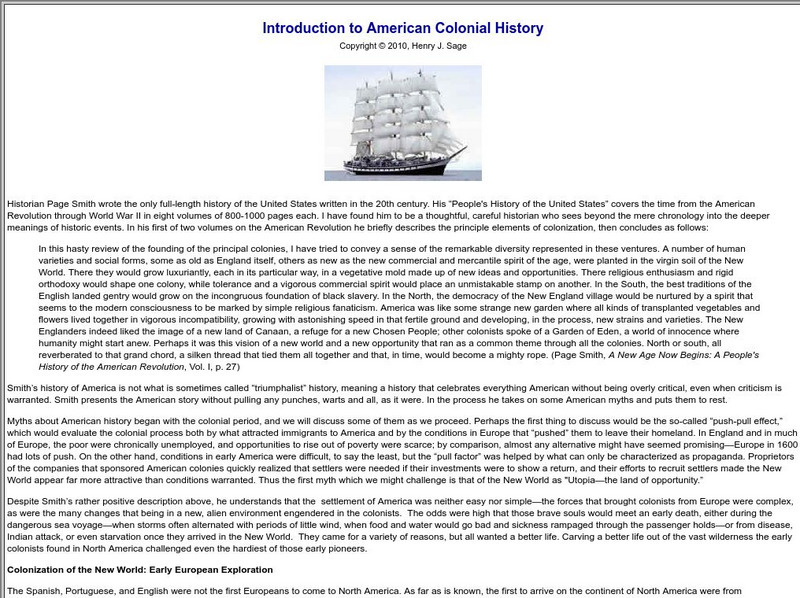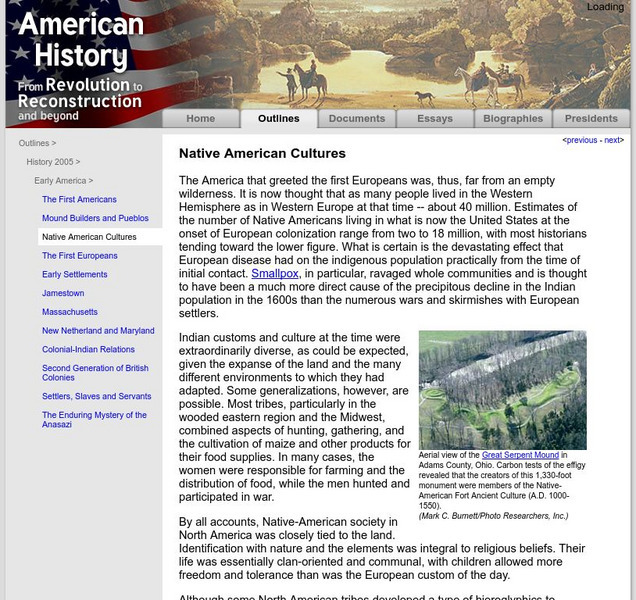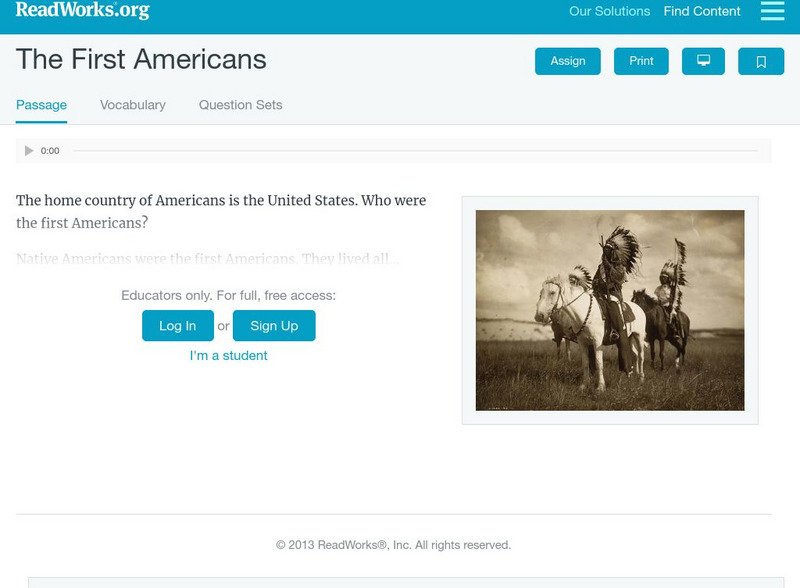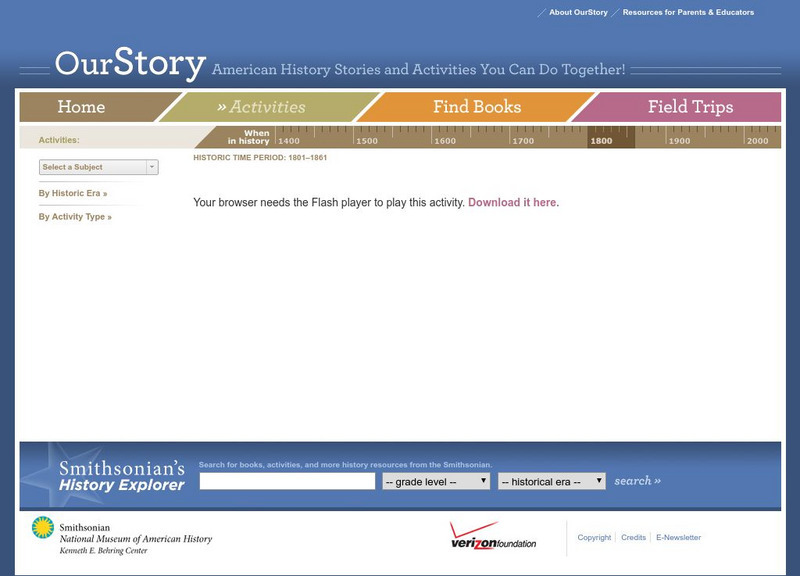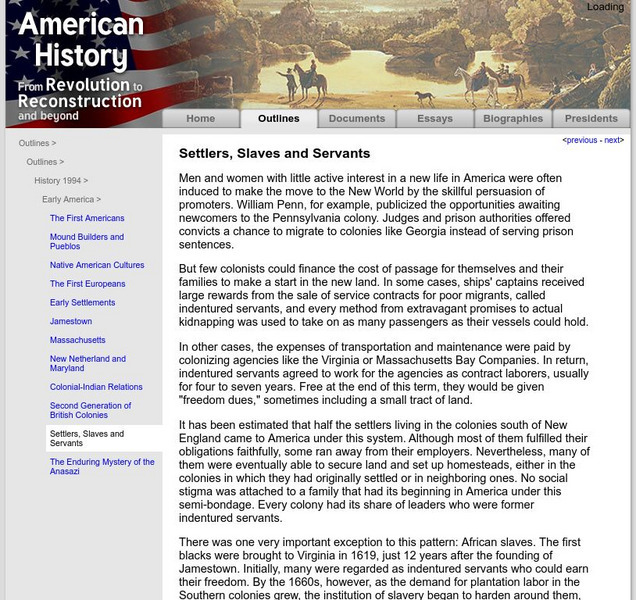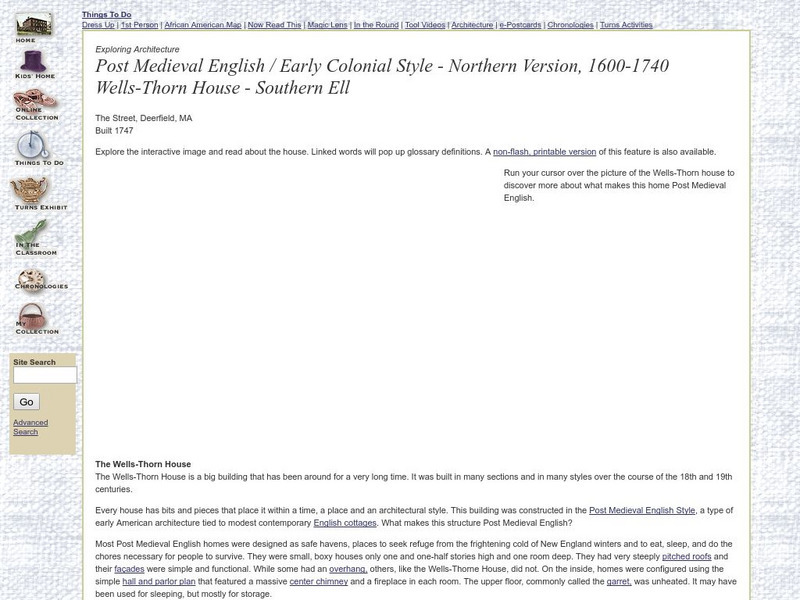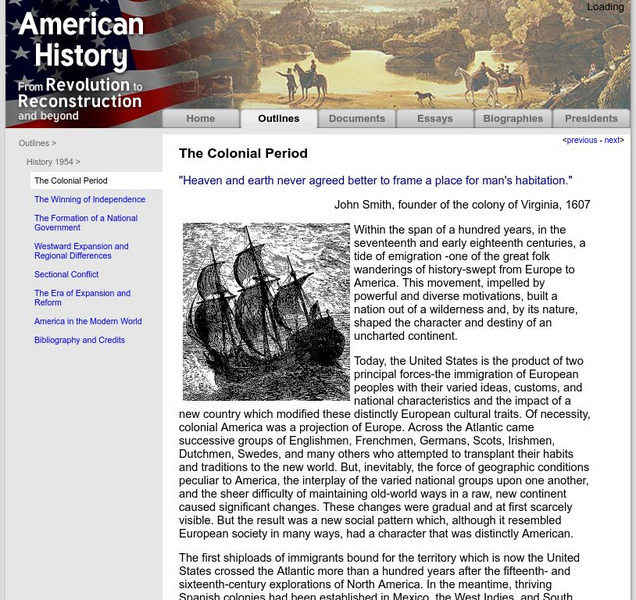Hi, what do you want to do?
Curated OER
The Beginnings of Slavery in South Carolina
Eighth graders conduct research to find information about the beginning of slavery in South Carolina. They compile the information they find into oral and written group presentations. Specific questions provided in this lesson plan need...
Curated OER
Idaho
In this Idaho reading comprehension worksheet, students read a 2-page selection regarding the state and they answer 10 true or false questions pertaining to the selection.
Curated OER
Archeological Pow-Wow
Students, in groups, examine the use of artifacts and fossils to study people, plants and animals from the past.
Curated OER
ABC's of the Louisiana Purchase
Students investigate the Louisiana Purchase by reviewing the ABC's of the purchase. Each letter of the alphabet is accompanied by information pertaining to the event. They participate in a variety of activities to reinforce the concepts...
Curated OER
Cotton Production and Milling
Students examine cotton production and milling. They compete in a hand-ginning contest to realize how difficult it was to separate the seeds from the fibers of cotton. They discuss why Eli Whitney's cotton gin was an important invention.
Curated OER
"Heritage" - "Hey, That's the Name of Our School!"
Seventh graders gain a better understanding of the canal period in U.S. History, and more specifically, discern the importance of the Illinois and Michigan Canal on the development of Illinois as a state and Chicago as a prominent city.
Curated OER
Whose Business?
Fourth graders compare and contrast the businesses in Fort Griffin with those in their own community. Using the internet, they discover the factors that have influenced the development of businesses in a town. They also create a map of...
University of California
The Bancroft Library: Images of Native Americans
These artworks are visual interpretations of Native Americans through the eyes of American settlers. Follow a timeline from 1500-1900 to see the perceptions of Native Americans of the white settlers at that time.
Henry J. Sage
Sage American History: Introduction to American Colonial History
Introductory article on American Colonial History in which the author takes a look at the first European settlers who made the voyage to America and addresses the essential question of who they were as people and hence, why they made...
University of Groningen
American History: Outlines: Native American Cultures
The America that greeted the first Europeans was, thus, far from an empty wilderness. It is now thought that as many people lived in the Western Hemisphere as in Western Europe at that time -- about 40 million. Estimates of the number of...
National Endowment for the Humanities
Neh: Edsit Ement: What Should a House Do
Site provides an extensive lesson plan that challenges students to compare early American houses to present day houses. Very comprehensive site with several activities that will assist students in understanding common features of houses....
Read Works
Read Works: The First Americans
[Free Registration/Login Required] Intended to support early elementary students' reading comprehension, the importance of Native Americans is discussed in this informational text. Visual cues are provided to support the passage and...
Smithsonian Institution
National Museum of American History: Building a Sod House
Ready to be an early settler on the plains? While playing this interactive game, you'll get to build your own sod house ..if ..you have the right answers.
University of Groningen
American History: Outlines: Settlers, Slaves and Servants
This resource provides a brief overview of how many settlers in the colonies were indentured servants and how the system of indentured servitude tied to slavery.
Annenberg Foundation
Annenberg Learner: American Passages: Utopian Promise: William Bradford
Seventeenth century author, William Bradford, set sail on the Mayflower and embarked on a journey to the New World using his experiences for his writings. Click on "William Bradford Activities" for related artifacts and activities.
Read Works
Read Works: What Did People Wear?
[Free Registration/Login Required] A literary text about the clothes worn by early Americans. A question sheet is available to help students build skills in reading comprehension.
University of Groningen
American History: Outlines: Settlers, Slaves and Servants
Men and women with little active interest in a new life in America were often induced to make the move to the New World by the skillful persuasion of promoters. William Penn, for example, publicized the opportunities awaiting newcomers...
Other
Memorial Hall Museum: Wells Thorn House: 1600 1740: Early Colonial Style
Useful tool for investigating an early type of American colonial architecture based on English post-medieval style. Roll over the photograph of the oldest wing of the Wells-Thorn House to isolate architectural design elements and learn...
University of Groningen
American History: Outlines: The Colonial Period
The early settlers to the New World began to map strategy for their own system of government. This site details that strategy and what kinds of events spawned the idea of representative government.
National Women’s History Museum
National Women's History Museum: Pocahontas
Among the most famous women in early American history, Pocahontas is credited with helping the struggling English settlers survive.
Other
Bringing History Home: Communities Long Ago
This Grade 1 unit explores U.S. communities in a historical context. By exploring their own community's buildings and services of both long ago and today, children in non-Native American communities are introduced to concepts of change,...
Houghton Mifflin Harcourt
Harcourt: Biographies: Anne Hutchinson (Spanish)
A review of the events in the life of Anne Hutchinson, a brave, early American settler. Learn how Anne Hutchinson felt about religion and the way people should worship God. (In Spanish)













